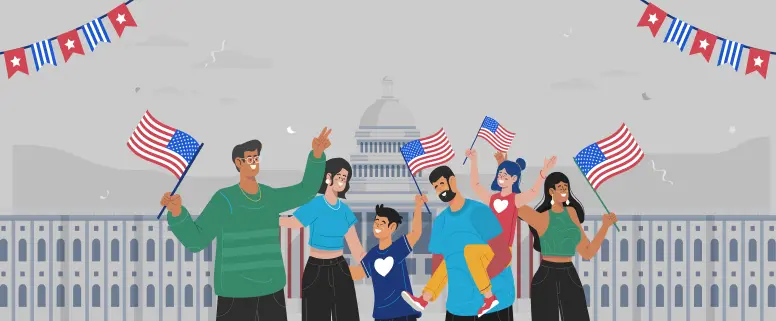The United States of America has played a crucial role in shaping the world into what it is today. Being the top superpower for more than a century, America has a very eventful past. From getting independence to the ever-evolving social laws. Today, we will cover some of the most important pieces of US history. Moreover, we will discuss the impact of these events.
Table of Content
- The American Revolution 1775-1783
- The US Constitution 1787
- The Purchase of Lousiana 1803
- The Civil War 1861-1865
- The Industrial Revolution (1800-1900s)
- The Era of Progress (1900s)
- The World War 1 (1917-1918)
- The Great Depression (the 1930s)
- World War 2 (1941-1945)
- The Civil Rights Movement (1950s-1960s)
- The Moon Landing (1969)
- 9/11 and The War on Terrorism (2001-Present)
- The First Black President Barrack Obama (2008)
- The Ukraine War (2023)
- Conclusion
The American Revolution 1775-1783
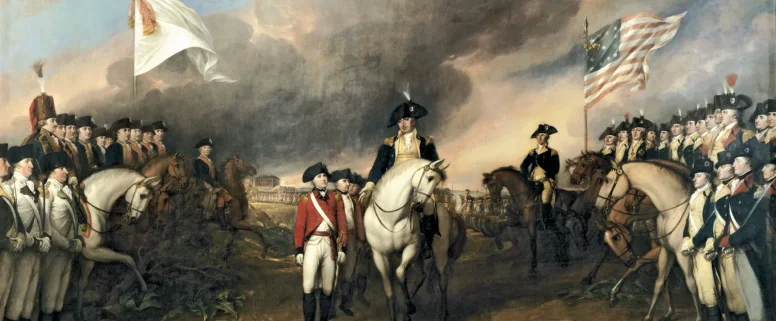
After more than a Century under British rule, the people became tired of the ever-increasing taxes and unfair attitude of the ruling elites. Moreover, some prominent writers such as John Locke and Thomas Paine inspired the American public and colonists with the idea of freedom. Raising tensions led to the battle of Lexington and Concord. Which many believe is the start of the American Revolution. A year after that Thomas Jefferson wrote the Declaration of Independence which explained the colony’s wish to be independent and free. After which a series of small to large wars were fought. The siege of Yorktown ultimately led to the surrender of the British army and ending the American Revolution.
The US Constitution 1787
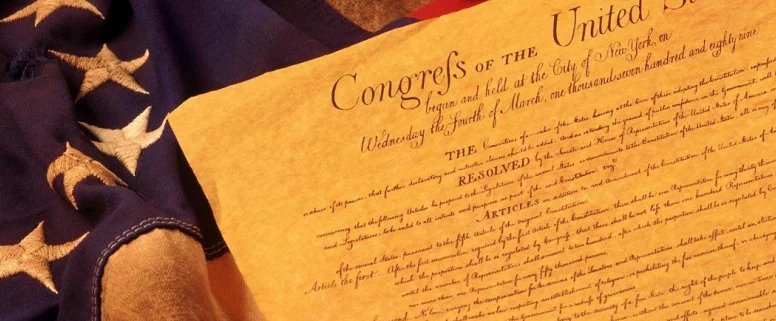
The Articles of Confederation proved ineffective in governing the country after the end of the war. This led the founding fathers to create the Constitution, which had all the laws needed to govern the country. The Constitution begins and its foundations are forever laid in “establishing justice,” “ensuring domestic tranquility,” “providing for the common defense,” “promoting the general welfare,” and “securing the blessings of liberty.”
The constitution on this basis has been amended 27 times to further protect the rights of marginalized groups, religions, and such. Moreover, we might see further amendments as cultures begin to shape.
The Purchase of Lousiana 1803
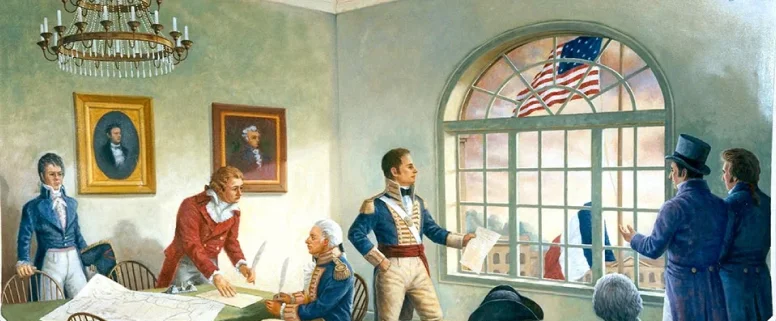
One of the most historic land deals in America was when President Thomas Jefferson purchased 828,000 square miles of land from the French. This doubled the size of the young United States and cost them only $15 million. This amounted to only 3 cents per acre, which was an amazing deal even for that time. Buying this land provided the US with fertile lands, mountains, water resources, and area for settlements. Access to the Mississippi River and the port of New Orleans laid the foundations for trade and westward expansion. However, it also set up the base for the slave trade and massively influenced today’s US culture.
The Civil War 1861-1865
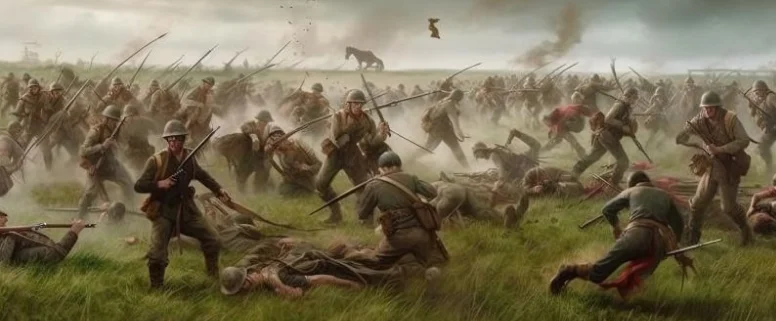
One of the most brutal events in world history was the Civil War. This was between Northern states known as the Union against the Southern States known as the Confederacy. The war was fought over issues such as state rights, regional identity, and most importantly slavery. This period saw several wars fought on the streets of America including Gettysburg and Antietam. President Abraham Lincoln’s Union victory helped save the United States from division and most importantly abolished slavery. This 4 year civil war led to 600,000 lives being lost and that is only what is accounted for. However, it paved the way for freedom and equal rights for all individuals regardless of race.
We see movements like Black Lives Matter today, but it would not have been possible if it wasn’t for Lincoln’s work. In 1863, Lincoln’s Emancipation Proclamation declared all slaves in the South as free men.
The Industrial Revolution (1800-1900s)
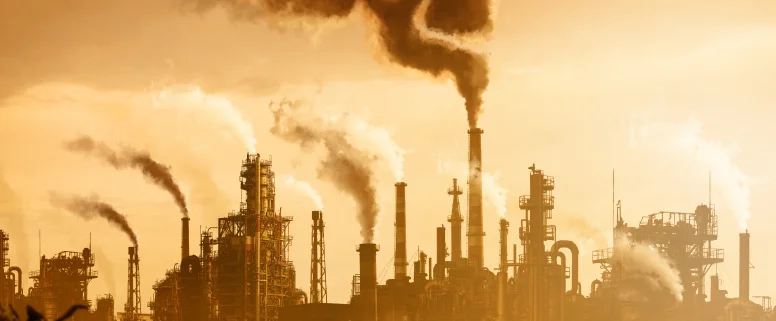
This period is vital in making America the global powerhouse we see today. It was a time when people began to shift from agrarian crafting-based production. And move towards a manufacturing-based economy. This led to the establishment of different businesses, and the population began to get rich. Moreover, manufacturing lowered the cost of production and prices leading to an increase in demand. This helped create jobs and transportation networks and urbanized many areas. Here is when American culture began to thrive and all major industries took a major boom.
The Era of Progress (1900s)
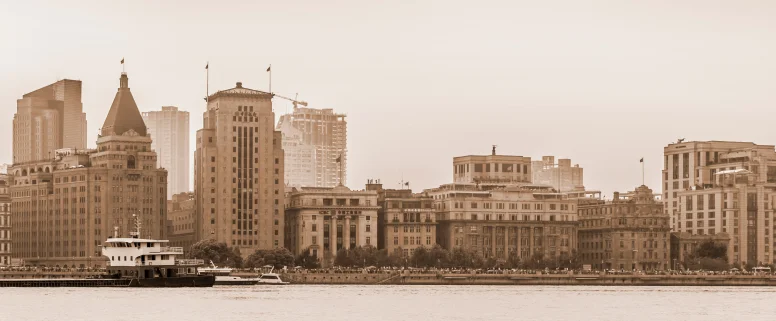
The Progressive Era, which lasted from the late 19th to the early 20th century in the United States, was a period of social and political reforms known for the efforts to address various social issues coming from industrialization, urbanization, and corruption in government. Progressives looked to improve living conditions and the well-being of Americans through different ideas.
Important factors of this era include the push for workers’ rights, women’s equality, the regulation of big businesses, anti-trust legislation, food and drug safety laws, and environmental conservation. Influential figures like Teddy Roosevelt and Woodrow Wilson played vital roles in this reform movement. This laid the foundation for future governments to work in favor of the public welfare and the growth of the nation. Moreover, this helped give a voice to those who needed it most, the vulnerable, weak, poor, and marginalized groups.
The World War 1 (1917-1918)
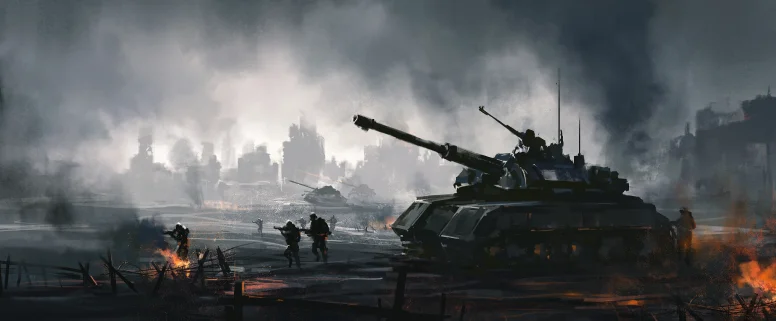
Though World War 1 took place during 1914-1918, the US was drawn into it during the last year. The global war was mostly taking place in Europe and involved France, the United Kingdom, and Russia, against the Central Powers, including Germany, Austria-Hungary, and the Ottoman Empire. America had kept a policy of staying neutral during the conflict but was dragged into the war. The factors included unrestricted submarine warfare by Germany and the interception of the Zimmermann Telegram. But it was mainly the interception of the telegram that stated a German proposal of alliance with Mexico for war against the US. In 1917, the US declared war on Germany, providing soldiers, financial support, and resources that helped turn the war in the Allies’ favor. The US took part in the Treaty of Versailles and changed the world order.
The Great Depression (the 1930s)
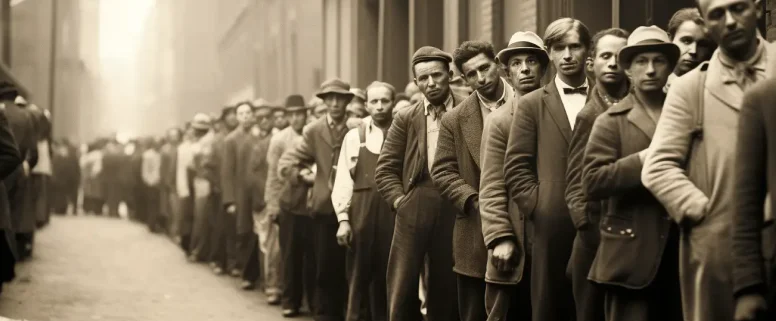
To date, it is still considered the most severe economic hit in US history. It started in 1929 and its effects ranged through the 1930s. The rigger was the 1929 stock market crash. This led to widespread unemployment, poverty, and financial downfall. Inflation was running ramped and supplies were in short demand. Many banks, businesses, and industries had closed down all of a sudden and people were in panic. President Franklin D. Roosevelt’s New Deal programs, implemented in the 1930s, aimed at ending suffering by providing jobs, financial reforms, and social programs. The Great Depression had a profound effect on future generations and how they created economic policies from there on.
World War 2 (1941-1945)
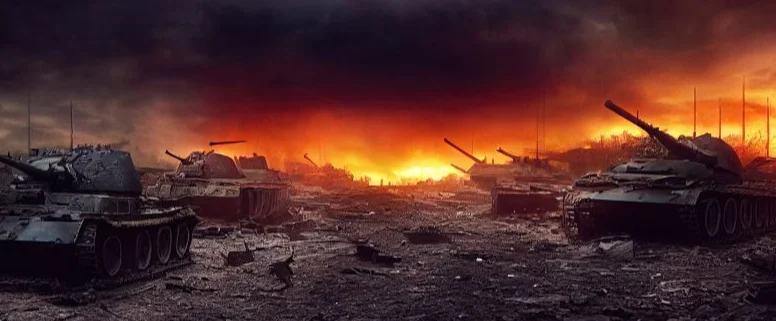
This time around, the US did not keep a neutral policy. The attack on Pearl Harbor in 1941, led to an explosive reaction of dropping nuclear bombs on Japan, Hiroshima, and Nagasaki. This changed the world’s view on nuclear bombs and created future restrictions so they may never be used again. The American nation was among the top weapons and war equipment manufacturers. The Americans actively took part in major battles, including the D-Day invasion of Normandy and the Pacific island-hopping campaign. The U.S. also played a key role in the Manhattan Project, developing the atomic bomb. The war effort not only helped pull the nation out of the Great Depression but also reshaped its global role. Moreover, the end of the war led to the United Nations.
The Civil Rights Movement (1950s-1960s)
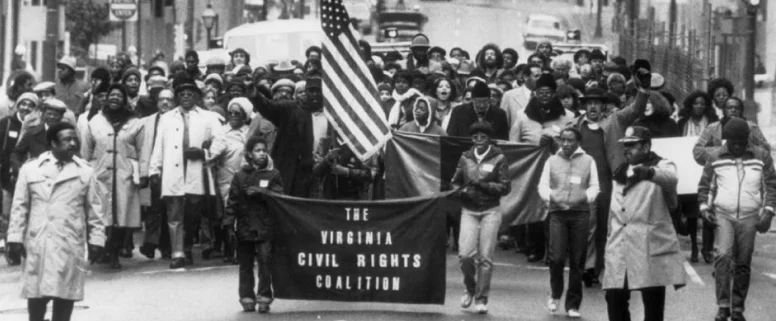
The civil war though had freed the African Americans, had not given them equal rights or social opportunities. Now they experienced a different kind of threat, which although most people may not agree. But I believe it was on similar lines to South Africa’s ’The Apartheid’. The black community was paid less, could not use the same washroom, wasn’t allowed in many establishments, and the law also did not favor them. Racial slurs and bullying were also common in society. Important movements like the Montgomery Bus Boycott, the March on Washington for Jobs and Freedom, and the passage of the Civil Rights Act of 1964 and the Voting Rights Act of 1965 are what majorly contributed to change. Leaders like Martin Luther King Jr helped the people raise their voices and got institutions to accept and protect Black-American rights.
The Moon Landing (1969)
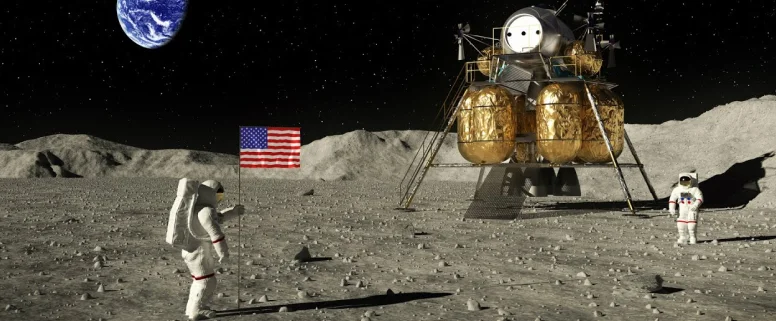
During the Cold War era phase, the Soviet Union had plans to put a man on the moon. They had previously beaten the US by putting the first satellite in space called Sputnik in 1957. The US replied by forming NASA and the Apollo program. When the Russians planned on sending a man to the moon, the US did the same. Now it was all about who would do it first, this meant more to both countries than technological advancements. It meant being recognized as a superpower and having more world influence. Though today Russia and America share the space station.
During the era of John F Kennedy, Buzz Aldrin and Neil Armstrong on July 20, 1969, were the first men on the moon. Upon laying his feet on the ground Neil famously said “That’s one small step for a man, one giant leap for a human.” The mission brought back valuable scientific data, expanded our understanding of space, and marked a significant chapter in human history.
9/11 and The War On Terrorism (2001-Present)
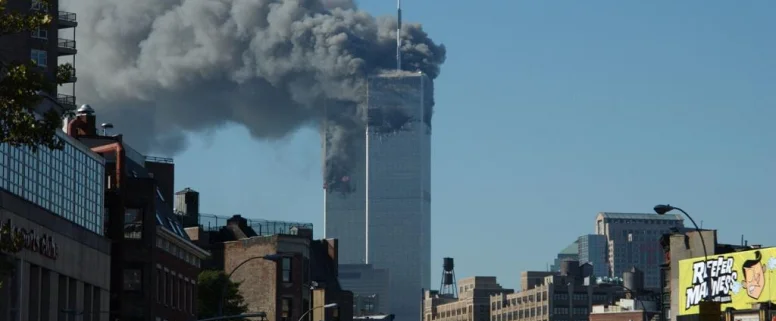
There are many mixed accounts of the event. Some say it was planned to justify the aftermath of what the US wanted. Nonetheless, it changed America’s foreign policy and it changed the lives of all Americans. 9/11, can be attributed to the spread of islamophobia, a religion consisting of more than 2 billion people on earth. The government has told people that the September 11 terrorist attacks were carefully planned and coordinated events. Moreover, these jihadists were on American soil when they planned this. The attack on the World Trade Center buildings killed nearly 3,000 people. United States foreign policy has never been the same again and it caused a massive change in society. Especially on their views about Islam and Muslims in general.
In response the USA invaded Iraq, Iran, and Afghanistan, and used sanctions for many others. The global impact of the event was brutal and millions of people have died since, but none American. However, public consensus greatly showed how the US citizens were not in favor of such a long war. Moreover, they want to move on from the mess, as the US themselves have also suffered because of the aftermath.
The First Black President Barrack Obama (2008)
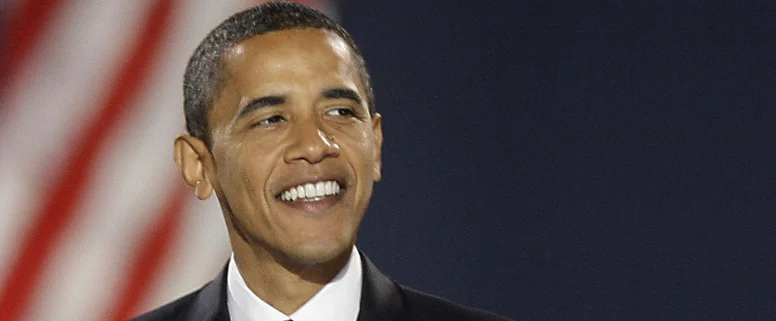
This was a historic moment not just in politics, but in US history. From beating slaves to death to not treating them equally, and finally having an African American running the system. This is fairytale stuff, to be honest, and only in America can you see such things happen. Obama’s victory sends a message of hope, and change, and that struggle does reap rewards. His campaign was built around equality and socially beneficial policies. To become president he gained the support of all communities. Obama’s win is one of the biggest milestones in the civil rights movement. It has also paved the way for more diversity within the nation and tolerance for them.
The Ukraine War (2023)
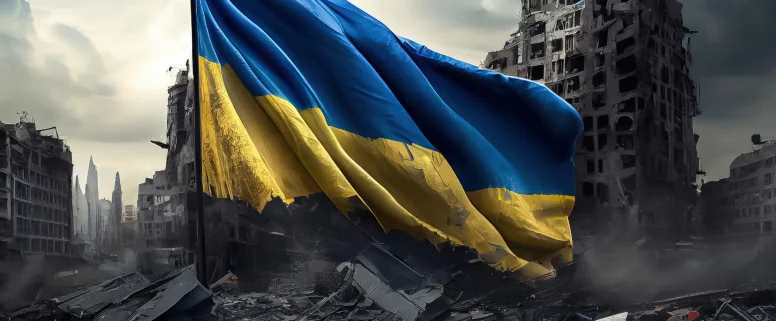
Though the US is not directly involved in the fighting, it kind of is. Tensions near the Russian border began to rise when neighboring country Ukraine was invited to join NATO. Now given that both countries have a shaky past since the annexment of Crimea, a moment like this would escalate tensions. The Russian leader Vladimir Putin criticized and warned their neighbors of doing so. Because it could result in security risks for their country. But the US backed Ukraine and they accepted the invite from NATO. Russia invaded the country for doing so and now trillions of US dollars have been donated for the war since. This does not include the millions in military aid. The US also pressured friendly countries to provide aid and support. While the US citizens were previously happy to support Ukraine.
Now the consensus has changed, because of the economic impact it has had on them. Countries being forced to pick sides have even begun trading in different currencies than the dollar. Oil prices have risen and global inflation has been experienced as a result. The issue is far more complex than ever. Biden’s government is quickly losing the public’s favor on this. Moreover, at the same time, Israel has launched a war against Hamas and Palestine. Now the US has begun sending aid to them and Ukraine. This has also enraged some Americans because they hold different public opinions.
Conclusion
American history is truly intriguing and eventful on a world-changing scale. Though we could not tell you all the events. But we did manage to tell you the most influential and history-shaping ones. Still, the United States does play a significant part in world politics. Also, the global economy is tied to the dollar. It’s quite evident that they will continue to make remarkable progress in their country. Moreover, their strong influence on global politics may also continue to grow further.
It won’t be wrong to say that the US foreign policy is currently their biggest asset and problem at the same time. Now, it will be quite interesting to see how things shape up from here. Their failure in the Middle East, and especially Afghanistan, is changing public opinion to a great extent.
